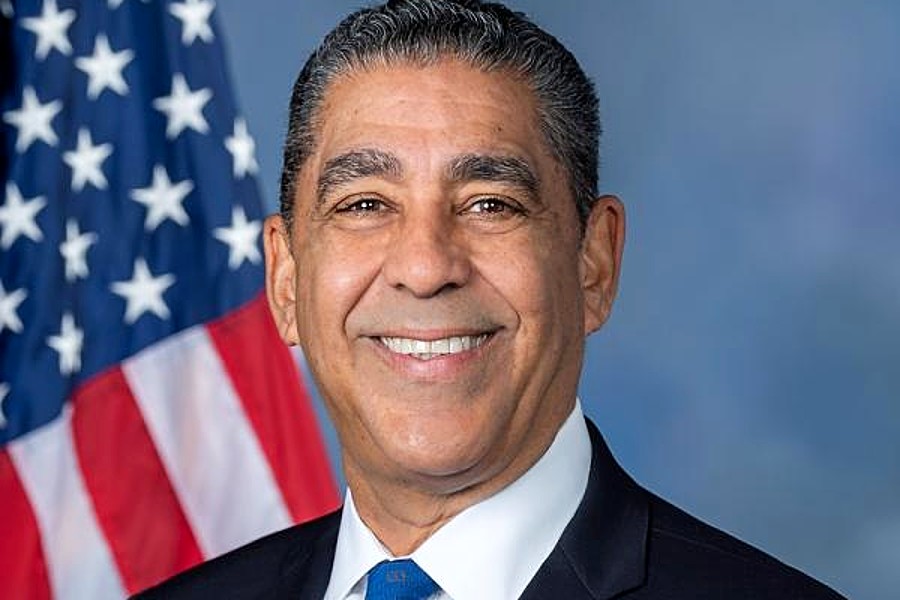
NYC Mayor Eric Adams and NYC Department of Sanitation (DSNY) Commissioner Jessica Tisch today opened up a new front in the Adams administration’s war on rats.
Launching a plan to containerize waste at approximately 95 percent of residential properties from Harlem to Hollis. Beginning in the fall of 2024, buildings with nine or fewer residential units will be required to place all trash in secure containers, and in specific, official NYC Bins beginning in the summer of 2026. The official NYC Bins will be available from a vendor through a request for proposal process that begins today, with prices capped substantially lower than they would be in retail stores. This new, multi-phase strategy will get black bags off of New York City streets, reclaim public space, and improve quality of life for all New Yorkers.
The new residential garbage containerization rule will cover all 765,000 New York City buildings with nine or fewer units, continuing the Adams administration’s work to move towards containerization of all waste citywide. It follows Mayor Adams and Commissioner Tisch’s expansion of containerization rules to get all commercial trash bags off city streets. Between the commercial containerization effort and these sweeping new residential rules, 70 percent of the city’s trash is headed into containers. As a result of the Adams administration’s efforts in recent months, this past summer, 311 calls about rat activity dropped by 20 percent citywide from the previous summer and 45 percent in Rat Mitigation Zones.
“Our administration is winning the war on rats, and we are keeping up the fight,” said Mayor Adams. “With this new plan to put residential trash in containers, 70 percent of trash in our city will be off our streets and out of rat buffet lines. We are moving aggressively to execute our ambitious vision and deliver the clean, safe city New Yorkers demand and deserve.”
“Today marks a huge step forward in our plan to end the era of trash bags on our curbs,” said Deputy Mayor for Operations Meera Joshi. “New York City is keeping more trash away from rats, keeping our sidewalks clear for people, and making it easier and cheaper than ever for New Yorkers to contain their trash.”
“Less than one year ago, we stood in front of City Hall and declared war on the rats, war on the bags, and war on the idea that other cities could get their trash off the streets, but New York couldn’t,” said DSNY Commissioner Tisch. “We’re closer than ever to showing the doubters, the rat-sympathizers, and the trash-lovers just how wrong they were.”
The official NYC Bins will be designed for mechanized collection. DSNY will retrofit or replace hundreds of collection trucks, adding mechanical tippers compatible with the new bins. This upgrade will speed up collection and minimize the possibility of street mess from manual collection. It also brings New York City in line with other world-class cities that have abandoned the practice of throwing bags from the curb into a truck by hand in many or all cases.
NYC Bins will be available from one authorized concessionaire, which will be selected through a process beginning today. DSNY has mandated that the concessionaire produce the bin in multiple sizes to accommodate different types of buildings and to match a number of specifications around aesthetics, rat resistance, ease of use by sanitation workers, and compatibility with mechanized collection.
In most major U.S. cities — where bins are required for trash — property owners pay a fee for sanitation service that covers the cost of the bin. Because New York City provides free, unlimited residential waste collection, property owners are responsible for purchasing the bin, but DSNY has set a maximum price far below what one would pay at a retail store. The request for proposals states that official NYC Bins, which will be designed to last at least 10 years, will start at no more than $50 for the most common size — and the competitive vendor selection process may bring the price down even further.
The Adams administration has rapidly implemented an ambitious, phased approach to trash containerization, including:
- April 1, 2023: Mayor Adams began the trash revolution by changing waste set-out time from 4:00 PM, among the earliest in the country, to 8:00 PM. This change heavily incentivized the use of containers by allowing containerized waste to go out earlier, at 6:00 PM — a change that drastically reduced rat sightings citywide, particularly in Rat Mitigation Zones.
- April 30, 2023: DSNY published an approximately 100-page report, “The Future of Trash,” providing the first-ever detailed, block-by-block analysis of what it would take to get black trash bags off of New York City streets. Today’s announcement was previewed on page 74 of that report.
- July 30, 2023: An Adams administration rule required all food-related businesses — including restaurants, caterers, grocery stores, delis, and bodegas, among others — to containerize their waste. This rule covered approximately 20 percent of the city’s businesses — a subset that produces an outsized amount of the kind of waste that attracts rats. During a one-month warning period, DSNY issued over 22,000 warnings to businesses covered under the rule that were not following the new guidance.
- September 5, 2023: The food-related businesses rule was expanded to cover all chain businesses with five or more locations in the city, regardless of what they sell, bringing the share of businesses covered up to 25 percent.
- September 11, 2023: DSNY launched a pilot of residential containerization and mechanized collectionat 14 schools and on 10 residential blocks in Hamilton Heights, Manhattan.
Additionally, beginning March 1, 2024, all businesses will be required to containerize all their trash. Businesses account for approximately half the total trash on city streets.
In many neighborhoods, the use of bins for residential trash is already commonplace. The timeline of this announcement allows New York City residential property owners several years to replace their existing bins with official NYC Bins. For property owners who do not already provide bins, the selected vendor will be required to have bins available when the residential rule goes into effect in the fall of 2024 and to be able to supply all bins — including replacements as needed — by the full implementation date in the summer of 2026.
While only trash must be containerized under the rule announced today, official NYC Bins will be available for recycling and compostable material as well. Many property owners may choose to use these bins to comply with set-out time regulations, which allow waste in containers to be set out at 6:00 PM while bagged waste may not go out until 8:00 PM.
The Adams administration is also advancing a plan to containerize residential trash in the remaining 5 percent of buildings, which have 10 or more units. While the bins for buildings covered by today’s announcement are placed on the sidewalk for collection, containers for the largest buildings will go on the street — though many large buildings have loading docks and will not require containers. This on-street container approach is being piloted on 10 residential blocks and at 14 schools in Hamilton Heights, Manhattan, and developments in this process will be the subject of future announcements.
The truck needed for the at-scale use of fixed on-street containers, known as an Automated Side Loader (ASL), does not currently exist in North America. DSNY is currently developing a prototype of an ASL that meets North American regulations.
“Stepping over trash piles on the sidewalks and dodging rats on the streets are universal New Yorker experiences that shouldn’t be,” said New York State Senator Brad Hoylman-Sigal. “Clean streets and clean air should be a right, not a privilege. I am delighted that our mayor and other city officials are being tough on trash and rats, which is a long overdue priority for New York.”
“Trash belongs in bins, not on our streets. I am so thrilled to join Mayor Adams and Commissioner Tisch in announcing this ambitious residential containerization plan, which will build naturally on the new, robust trash rules for businesses coming this spring,” said New York City Council Member Shaun Abreu. “New Yorkers are done putting up with rats rummaging through black plastic bags thrown all over the place. Thankfully, as we have seen in the first months of DSNY’s trash containerization pilot program in West Harlem this fall: containerization works.””
“I want to thank Mayor Adams and the New York City Department of Sanitation for kicking into high gear this initiative that will go a long way in keeping our streets clean as well as safe from disease-spreading vermin,” said New York City Council Member Marjorie Velázquez. “This initiative will go a long way in helping homeowners do their part to prevent unsightly mountains of garbage from piling up on the sidewalk and the side of our buildings while also improving the quality of life throughout the five boroughs.”
- LISC CEO Michael T. Pugh Recognized Among 2024 Worthy 100 Leaders
- NY Lawmakers Celebrate Historic MENA Data Recognition Bill Signed By Hochul
- Sponsored Love: Leadership Skills Training Courses: Invest In Your Future Today
- Senator Hoylman-Sigal Calls On Independent Schools To Adopt NYC Public School Calendar
- Mayor Adams Celebrates 65 Million NYC Visitors In 2024, Second-Highest Ever
Become a Harlem Insider!
By submitting this form, you are consenting to receive marketing emails from: . You can revoke your consent to receive emails at any time by using the SafeUnsubscribe® link, found at the bottom of every email. Emails are serviced by Constant Contact









